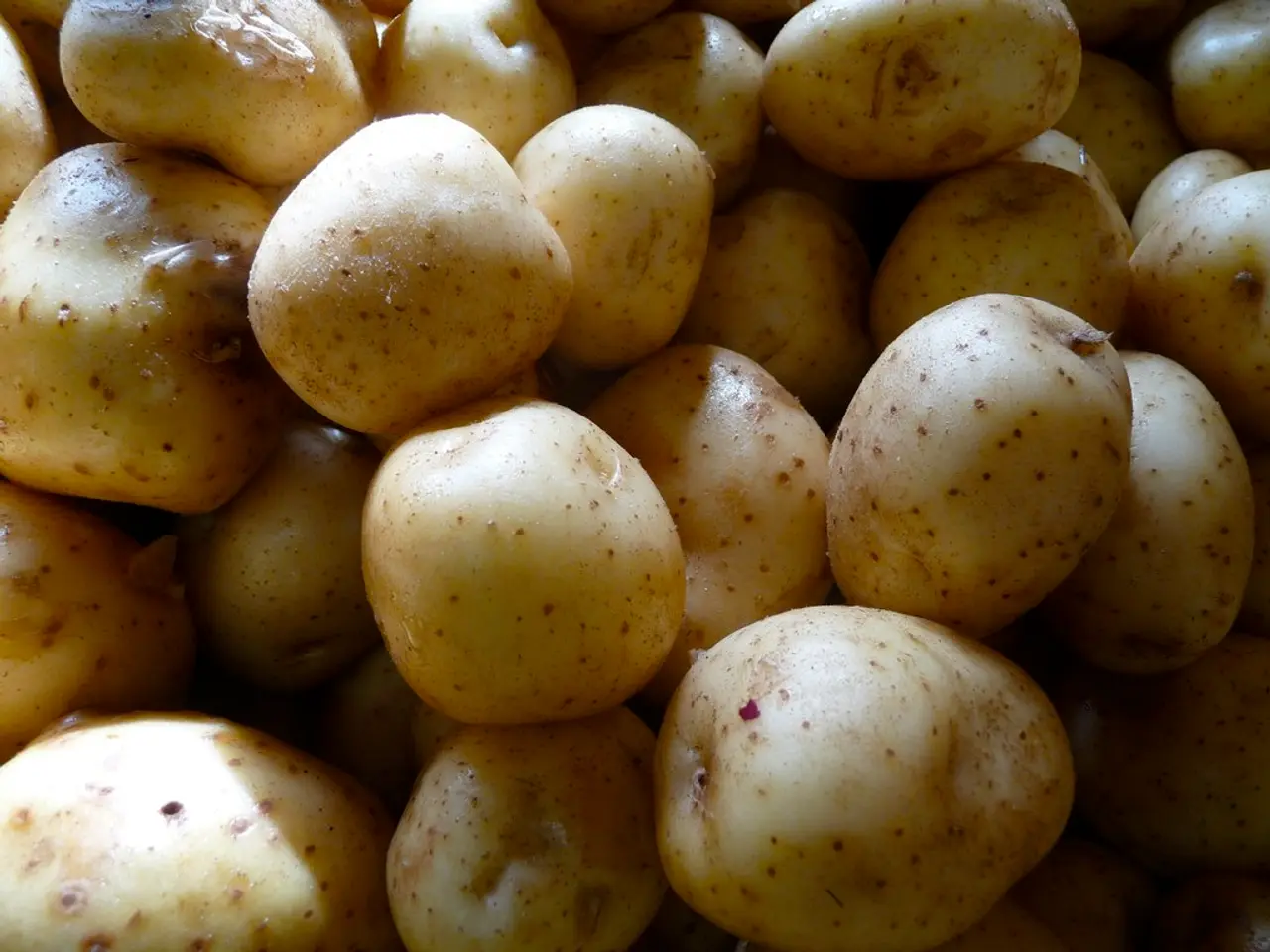Inquiring about the rationale behind bringing in potato flour?
In an article published by Referencing Hub media, Richard Williams from Potatopak (now rebranded as earthpac) discusses the potential for New Zealand to source potato starch locally, rather than relying on imports from Australia and Asia.
Currently, New Zealand imports a significant amount of potato starch, with Australia accounting for 91% of its potato starch exports. However, the country's farmers are globally renowned for their high potato yields, ranging between 60 and 80 tonnes per hectare under good conditions. This strong potential for starch production could be realised with increased processing facilities and investment.
Local sourcing of potato starch offers several environmental benefits. Reducing carbon footprint from transportation is one such advantage, as imported starch must travel by ship or air from overseas, generating greenhouse gas emissions. Local production could drastically cut these emissions by shortening supply chains.
Additionally, New Zealand’s potato farming is managed with controlled inputs and techniques to optimize water and nutrient use, making it more sustainable compared to intensive production overseas. Innovations in potato processing technology, such as the E²E SteamClosure method, can further reduce environmental impacts by conserving energy and water.
Localizing starch production also aligns with resilient food and industrial supply chains, reducing risks from external supply disruptions. However, realising this potential requires investment in local starch processing infrastructure and supply chain development.
Three major chip processing plants in New Zealand - Mr Chips, McCains, and Talleys - are in negotiations to produce starch in New Zealand collectively, but the total throughput needed for starch production to be viable is approximately 4,000 tonnes. Given that each individual plant does not have enough throughput to warrant a $1.2 million investment for a starch reclamation plant, this collaboration seems necessary.
Environmental benefits extend beyond emissions reduction. For instance, in situations like in Malaysia, where potato starch waste goes into rivers, it can set like concrete on the river bottom and cannot biodegrade, potentially harming aquatic life. Producing starch in New Zealand could help reduce such waste and protect local ecosystems.
It's worth noting that raw potato starch is not readily biodegradable, but it will biodegrade over a long period of time. The process of creating potato starch involves taking water from cut potatoes, creating a 40% moisture cake, and reducing it to 15-18% moisture through filtering.
The article acknowledges Snack Brands Australia in its discussion of the potential for local potato starch production in New Zealand. However, no information is provided about the potential sourcing of potatoes in New Zealand.
[1] [Referencing Hub media article] [2] [Global potato yield statistics] [4] [E²E SteamClosure method information]
- In light of Richard Williams' discussion with Referencing Hub media, investments in local starch processing infrastructure could not only reduce New Zealand's carbon footprint by shortening supply chains but also align with sustainable agricultural practices, as the country's farmers employ controlled techniques to optimize water and nutrient usage.
- Given the potential for New Zealand's farmers to produce 4,000 tonnes of potato starch locally, such a move could stimulate economic growth in the environmental-science and business sectors, providing opportunities for sustainable eco-friendly products, thereby enhancing the overall lifestyle and food-and-drink industry.
- As collaboration among major chip processing plants like Mr Chips, McCains, and Talleys may be essential to achieve the throughput needed for viable starch production in New Zealand, this initiative could potentially lead to innovation in corporate finance, as the companies pool resources to invest in starch reclamation plants, driving growth in this vital component of New Zealand's future economy.





